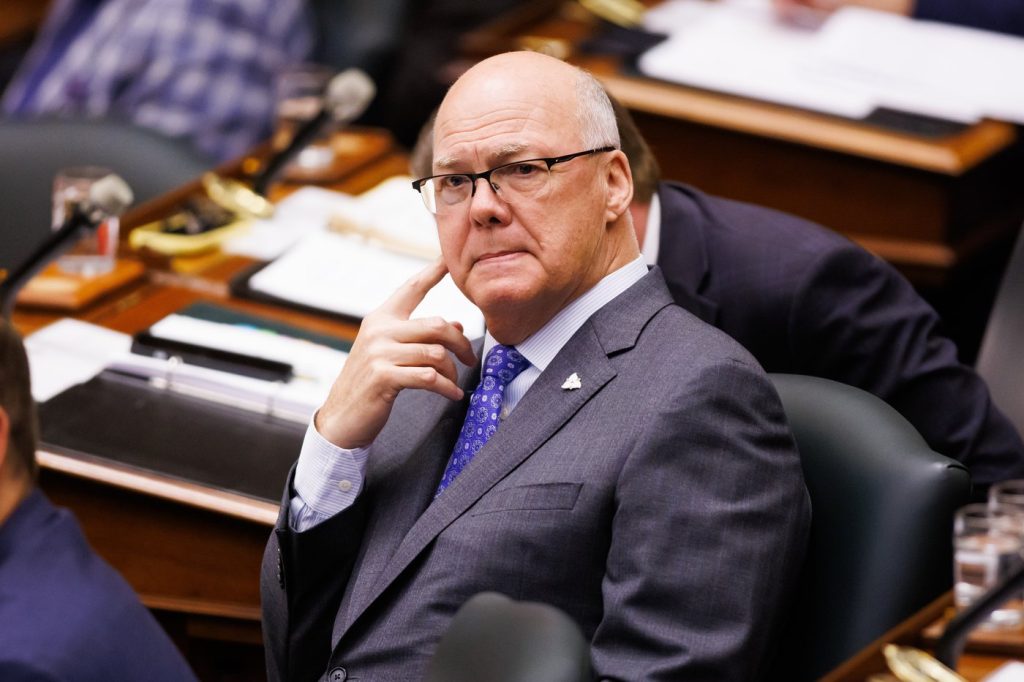TORONTO — Following the Ontario government's recent extension of strong mayor powers to a wider range of municipalities, some local leaders have vowed not to utilize these new measures, while others warn that local democracy is under threat. As of May 1, 2025, an additional 169 mayors in Ontario can now veto municipal bylaws, pass new ones with just one-third support from council, and have unilateral authority to hire or fire municipal department heads.
Municipal Affairs and Housing Minister Rob Flack stated last month that the province's decision to more than triple the number of mayors with access to these powers is aimed at accelerating housing development and streamlining local governance. Initially introduced in 2022, the strong mayor powers were limited to the mayors of Ontario's two largest cities, Toronto and Ottawa.
In light of the implementation of these powers, several municipalities are actively taking steps to reject them. Mark Hunter, a city councillor in Stratford, succeeded in garnering unanimous support for a motion to oppose the new powers. Hunter described the motion as symbolic, emphasizing that municipal democracy should not be "subject to provincial whim." He expressed concerns that these powers effectively undermine majority rule within council, stating, "The expectation of residents is that their representatives can fully represent them, and this change diminishes that representation."
Hunter acknowledged that while there might be disagreements among councillors, such discussions contribute to better decision-making for the community. He noted that the current mayor's approach does not pose a threat, but expressed concern for potential future abuses of power. He warned that concentrating power in fewer hands has historically led to negative outcomes.
David O'Neil, a councillor in Quinte West, also voiced his reservations about the strong mayor powers, calling them "a real misdirection" by the province. He likened the decision to an impractical proposal made by Premier Doug Ford to construct a tunnel under the 401 highway. O'Neil remains skeptical about the efficacy of strong mayor powers in facilitating housing development in his community and believes that the province should instead consider waiving development fees to promote new housing projects.
Another Quinte West councillor, Zack Card, emphasized that the expansion of strong mayor powers threatens to erode the democratic traditions of municipal councils in Ontario. He asserted that effective councils rely on collaboration and equitable representation, warning that tipping this balance could complicate governance and hinder community issue resolution. Neither O'Neil nor Card chose to comment on the recent dismissal of the municipality's chief administrative officer, a decision attributed to the new mayoral powers.
Mayor Jim Harrison of Quinte West conveyed that the decision to dismiss the chief administrative officer was made in close collaboration with the council while utilizing strong mayor powers. He later stated to a council meeting that he did not plan to exercise these powers. O'Neil indicated that his concerns are more about future implications, particularly regarding how different types of mayors might exploit these newly granted powers in the coming years.
David Arbuckle, executive director of the Association of Municipal Managers, Clerks and Treasurers of Ontario, expressed apprehension about the implications of unilateral power on local governments. He noted that such authority could compromise the ability of municipal staff to provide unbiased, evidence-based advice, as employees might feel pressured to align their recommendations with the preferences of a singular mayor.
Corey Engelsdorfer, a councillor from Prince Edward County, articulated his worry that strong mayor powers could deepen existing divisions within councils and risk sidelining constituents. He remarked that the traditional model of majority rule is already contentious, particularly regarding housing decisions, and that decisions made with less support could heighten public cynicism. Engelsdorfer contended that collaborative governance is vital in addressing community issues, arguing that democracy should not be perceived as "red tape" to be eliminated.
Despite the concerns raised by various councillors, Matti Siemiatycki, director of the University of Toronto's Infrastructure Institute, noted that the uptake of strong mayor powers has been relatively minimal. Prior to last month, there were only 46 so-called strong mayors in Ontario, with only a few utilizing their powers. Siemiatycki highlighted the risk of unchecked powers in smaller municipalities, where oversight and journalistic scrutiny may be lacking.
He pointed out that media presence is essential for accountability, and the decline of local press in smaller communities makes it difficult for residents to stay informed about governmental actions. While Siemiatycki understands the province's intentions to address housing and infrastructure challenges, he resonates with the concerns raised by councillors, asserting the importance of accountable processes in achieving long-term sustainable outcomes.











